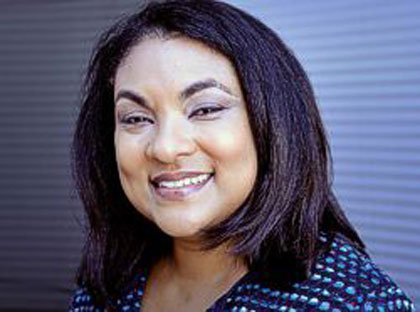BALTIMORE — Maria Thompson acknowledges a poorly kept secret: Coppin State University has had its share of enrollment problems.
Total enrollment was 3,133 with 2,684 undergrads enrolled out of 4,372 undergraduate applicants— 43 percent of applicants were admitted but just 16 percent of those actually enrolled, according to campustours.com.
However, that’s not a trend specific to Coppin, it’s a national problem and one that Thompson has prioritized at the Historically Black College and University.
“Turning around the enrollment situation is the immediate goal,” said Maria Thompson, who was named the first female president at Coppin last year. Unsurprisingly, she does have a concrete plan to accomplish her mission.
“There are two components. One is making sure that enough new students are attracted to your campus. The second is, once you have enrolled students, make sure that they attain to graduation,” she said. “We’ve already devised a plan to address those two components of enrollment.”
Thompson arrived at Coppin from the State University of New York at Oneonta where she served as provost and vice president of academic affairs.
Prior to that, she worked for 13 years at Tennessee State University, another HBCU, where she developed a plan that expanded the school’s externally funded projects program which helped to boost the budget to well over $45 million.
At Oneonta, Thompson oversaw institutional accreditation, curricular planning and the career development of more than 500 university educators and she initiated the first academic master plan, which led to the restructuring of the division of academic affairs at the SUNY School.
At Coppin, she becomes the first female president in its more than 115-year history.
“I’m having a great time and I’m enjoying working with the faculty, staff and students here. It’s a really good community,” Thompson said.
Her accomplishments are a reflection of her upbringing, hard work and the trailblazers who made her path possible, Thompson said, noting that she’s an HBCU alum as were her parents.
“I do realize that some of the accomplishments in my career were only made possible by our namesake, Fanny Jackson Coppin, who was a pioneer for women and African-Americans and so I read her writings often,” Thompson said.
Born a slave in Washington, D.C. in 1837, Fanny Jackson Coppin eventually was bought out of slavery and attended Rhode Island State Normal School and then Oberlin College, becoming the first black individual chosen to be a pupil-teacher. She became a lifelong advocate of higher education for women.
“She made it possible for people like me to do what I’ve been able to and to accomplish what I have,” Thompson said.
Thompson said it’s unimaginable for her to head any school that’s not an HBCU.
“You have to give your whole life and believe with every fiber the cause of the HBCU,” she said. “After seeing what HBCU’s have done for African-Americans, I cannot imagine being a college president anywhere else.”
Coppin State’s history is steeped in graduating students who’ve gone on to become nurses, teachers and top-flight professionals in various fields. The university has 33 majors and 12 graduate degree programs with courses in science, engineering, mathematics, business, nursing and teaching.
When asked about a typical day, Thompson says there aren’t any.
“It can range from— like my day on [Wednesday]— I start with a breakfast meeting, the Mission Investors Conference, where I’m serving on a panel with other presidents in the city,” she said. “By the end of the day, I’m in a meeting with one of the representatives from our accrediting body and I could easily on any day go into an academic department for a program, a pinning ceremony or an athlete banquet. I was in Annapolis just about every day to speak with legislators there about all of the wonderful things at Coppin State.”
STEM education is also critical and Coppin recently opened a new Science and Technology Center that will enable access to cutting edge, high-performance sciences and technology education that allows for a wide range of teaching, learning and research activity.
“It’s vitally important for Coppin to be involved in promoting STEM and STEM careers and there is no other science university in West Baltimore,” she said. “Others specialize in more or less social sciences and we have too, but now we have the new center. There’s also not enough African-American women in the STEM fields and it’s important that we give our students in our community an opportunity to study in the STEM field.”
